CARE OF THE WHOLE PERSON: MENTAL HEALTH

Breaking Free from the Hustle and Grind • Communities of Care
Caring for the Whole Person in Catholic Schools
Honor Your Journey • Prayer and Mental Health


Breaking Free from the Hustle and Grind • Communities of Care
Caring for the Whole Person in Catholic Schools
Honor Your Journey • Prayer and Mental Health
Children start having lockdown drills in infancy: My 3-year-old has four this year alone at his Montessori preschool, as mandated by New York State. Last summer the U.S. Surgeon General found that 48 percent of parents find that most days their stress is completely overwhelming, citing the lack of reliable and affordable child care, lack of parental leave, social media, and gun violence as just a few of the reasons for what he calls a “serious public health concern for our country” in a New York Times op-ed.1 Basic necessities are becoming ever more expensive due to inflation, with food prices raising over 25 percent since 2019, according to the U.S. Department of Agriculture.2 And in 2024, the American Psychological Association found that politics were also a major source of stress for people, with 77 percent of U.S. adults saying that they were significantly stressed over the future of our nation.3
All in all, it is no wonder that more than 1 in 5 adults over the age of 18 are experiencing some sort of mental illness, with almost 20 percent being diagnosed with some sort of anxiety disorder.4 And yet, the same report, from the National Alliance on Mental Illness, found that in 2021 less than half of adults with mental illness received treatment.
Failing to receive mental health care isn’t trivial. People with depression have a 40 percent higher risk of developing cardiovascular or metabolic diseases than the general population. They are more likely to abuse substances or suffer from unemployment. High school students are more likely to drop out of school or repeat a grade.
Our faith lives and mental health care go hand in hand. In a pastoral letter titled “Hope and Healing,” the California bishops write, “Catholics should be the first among all to witness to the truth of the dignity of every human person, so as to live in love and solidarity with our neighbor.”5
1 Vivek H. Murthy, “Surgeon General: Parents Are at Their Wits’ End. We Can Do Better,” New York Times (New York, NY), Aug. 28, 2024.
2 “Food Price Outlook - Summary Findings,” USDA Economic Research Service, USDA, updated Jan. 8, 2025, https://www. ers.usda.gov/data-products/food-price-outlook/summaryfindings#:~:text=Between%20the%201970s%20and%20 early,prices%20increased%20by%207.7%20percent.
3 Zara Abrams, “The Impact of Election Stress: Is Political Anxiety Harming your Health?” American Psychological Association, updated Oct. 22, 2024, https://www.apa.org/monitor/2024/10/managingpolitical-stress.
4 “Mental Health by the Numbers,” National Association on Mental Illness, updated April 2023, https://www.nami.org/about-mentalillness/mental-health-by-the-numbers/#:~:text=22.8%25%20 of%20U.S.%20adults%20experienced,represents%201%20in%20 20%20adults.
5 California Catholic Conference (Bishops of California), “Hope and Healing: A Pastoral Letter from the Bishops of California on Caring for Those Who Suffer from Mental Illness Addressed to All Catholics and People of Goodwill,” May 2018, cacatholic.org.
This issue of AMOS examines how people of faith are working toward mental health care both in their communities and as individuals. Christian Bentley, a mental health first aid provider and peer support specialist, writes about how societal stresses place an additional burden on mental health and how his faith helps him prioritize his own care in the face of such an oppressive system. He cites prayer, the rosary, the saints, and scripture as all having meaning for people seeking to integrate their spirituality with their mental health.
Along a similar vein, in “Prayer and Mental Health,” Patrick Saint-Jean, S.J. writes about how prayer and mental health care aren’t mutually exclusive, but actually go hand in hand. “While prayer, worship, and meditation may be essential aspects to mental health, they are not the only avenues for engaging with it,” he writes. “Christians have a spiritual and theological obligation to use all available resources to be healthy, including having a good therapist, a strong spiritual community, spiritual director, and/or pastoral counselor.” In “Honor Your Journey,” Samantha Camera takes this one step further, explaining step by step how to find a therapist who fits each person’s individual needs.
“Prayer and mental health care aren’t mutually exclusive, but actually go hand in hand.”
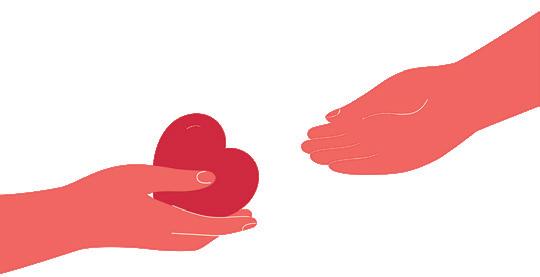
Other articles, including “Communities of Care” and “Caring for the Whole Person in Catholic Schools,” outline the work that IPJC is doing to prioritize this issue. In the former, Jessica Molina, a member of the Aberdeen Women’s Justice Circle, writes of how the “group felt compelled to step into the [mental] health crisis as champion messengers to help distribute healthbased information and resources” and details the work they’ve done over the past few years. The latter article is an abridged version of a report that the Youth Action Team put together about how to prioritize mental health in Catholic schools, which they then presented to the archdiocese.
Whether this issue inspires someone to get involved in advocacy in their local communities or to finally seek out a therapist for themselves, I hope that each of these articles inspire a new perspective on how mental health and faith interact.
—Emily Sanna, Editor

BY CHRISTIAN BENTLEY
Our current capitalist system often prioritizes profit over people, placing significant stress on people’s mental health. The constant demand for productivity, coupled with economic instability, rising living costs, and an emphasis on individual achievement, creates an environment that exacerbates anxiety, depression, and burnout.
Many people feel trapped in a relentless cycle of work and financial strain, with little time to rest, reflect, or connect with others. In this reality, it is crucial to find ways to take care of ourselves, not only physically and emotionally but spiritually as well.
As someone living with bipolar 1 disorder, I have experienced firsthand how this system can take a toll. Societal pressures to maintain appearances, perform professionally, and meet external benchmarks of success often magnified the highs of mania and the depths of depression I experience. It was only by embracing my faith and seeking holistic wellness that I began to find balance and meaning in my life.
For me, the Catholic faith has been a cornerstone of my mental health journey. Practices such as praying the rosary, spending time in eucharistic adoration, and immersing myself in gospel music have provided a sense of stability and hope amid life’s storms.
The rosary, in particular, offers a healing, meditative rhythm that calms my mind and connects me to the life of Christ and the intercession of Mary. In moments of despair, the words of the Hail Mary remind me of God’s unending mercy and love, echoing the perseverance and faith of my enslaved Catholic ancestors, who turned successfully to prayer during times of suffering and uncertainty.
Eucharistic adoration calls me to sit in silent reflection before the Blessed Sacrament, grounding me in the assurance that I am never alone. While I sit during adoration, I sometimes silently sing “Jesus Is Here Right Now,” a gospel song by the late, great Black Catholic gospel liturgist Leon Roberts. It’s gospel music, rooted in the resilience and joy of the Black experience, that lifts
“It was only by embracing my faith and seeking holistic wellness that I began to find balance and meaning in my life.”
my spirit and reminds me of the strength found in my faithfilled community—a legacy of hope and thankfulness nurtured by the Josephites that continues to sustain and inspire me.
These practices are not merely rituals; they are lifelines. They have encouraged me to share my journey with others and to work toward creating communities of support and understanding.
The Catholic tradition offers rich resources for those navigating mental health challenges. Many saints, popes, and biblical figures have spoken about the struggles of the human soul and the redemptive power of faith.
St. Pope John Paul II, a champion of human dignity, once said, “Do not abandon yourselves to despair. We are the Easter people, and hallelujah is our song.” His words remind us that even in the darkest times, we are called to hope and renewal. Likewise, St. Dymphna, the patron saint of those with mental illnesses, provides a model of courage and intercession.
In the psalms, meanwhile, we find raw expressions of human emotion that resonate deeply with those battling mental health struggles. Psalm 34:18 assures us: “The Lord is near to the brokenhearted and saves the crushed in spirit.” These words have comforted me during my darkest moments, reminding me that God’s presence is a source of healing, and I do not have to give up.
My journey to wellness has fueled my desire to help others in my community. Through my work as a Catholic mental health and social justice advocate, I strive to create spaces where people can feel seen, heard, and supported. Whether it’s organizing mental health workshops, engaging in restorative justice circles, or advocating for systemic change, I see my faith and experiences as a driving force behind my efforts.
Catholic social teaching emphasizes the dignity of the human person and the importance of solidarity. This has shaped my approach to mental health advocacy and led me to focus on building relationships and addressing root causes.
In this demanding system, self-care is an act of resistance. Beyond spiritual practices, it is essential to prioritize rest,

“Let nothing disturb you. Let nothing frighten you. All things are passing. God never changes. Patience obtains all things. Whoever has God lacks nothing; God alone suffices.”
— ST. TERESA OF ÁVILA
establish boundaries, and seek professional help when needed. Therapy, medication, and peer support groups have been invaluable components of my journey, complementing my faith and prayer life.
As Catholics, we are called to foster a culture that values the whole person—mind, body, and spirit. This means advocating for policies that promote mental health access, supporting one another in community, and reminding ourselves that our worth is not tied to our productivity. Sadly, this is not always easily done.
For those seeking to deepen their understanding and engagement with mental health from a Catholic perspective, I highly recommend the Pastoral Response to Persons with Mental Illness by the National Catholic Partnership on Disability (NCPD). This resource provides practical and theological insights for addressing mental health in parish settings.
Additionally, the Association of Catholic Mental Health Ministers offers training and resources for those interested in supporting individuals with mental health challenges. Their work is a testament to the church’s commitment to accompanying those in need.
In a world that often feels overwhelming, we must remember that healing and hope are always possible. As St. Teresa of Ávila said, “Let nothing disturb you. Let nothing frighten you. All things are passing. God never changes. Patience obtains all things. Whoever has God lacks nothing; God alone suffices.”
May we lean into our faith, care for one another, and build a world where every person feels valued and supported. In doing so, we reflect the love of Christ and the beauty of the gospel, offering light in even the darkest moments.
Christian Bentley is a certified mental health first aid provider and peer support specialist, committed to blending his faith with advocacy for mental health and social justice. As director of evangelization and discipleship at Saint Joseph Catholic Church, he leverages his role to engage the community in the Catholic faith and in addressing mental health and social justice issues. He serves on the Council on Mental Illness and Wellness for the National Catholic Partnership on Disability. As a core team member with Josephite Vocations and co-lead for mental health initiatives with Virginians Organized for Interfaith Community Engagement (V.O.I.C.E.), he actively supports spiritual growth and mental health awareness within the Catholic Church and broader communities.
Image: Statue of St. Teresa of Ávila at Encarnación convent in Ávila, where she spent most of her religious life. It was here that she began to reform the Carmelite order, and had some of her mystical experiences.

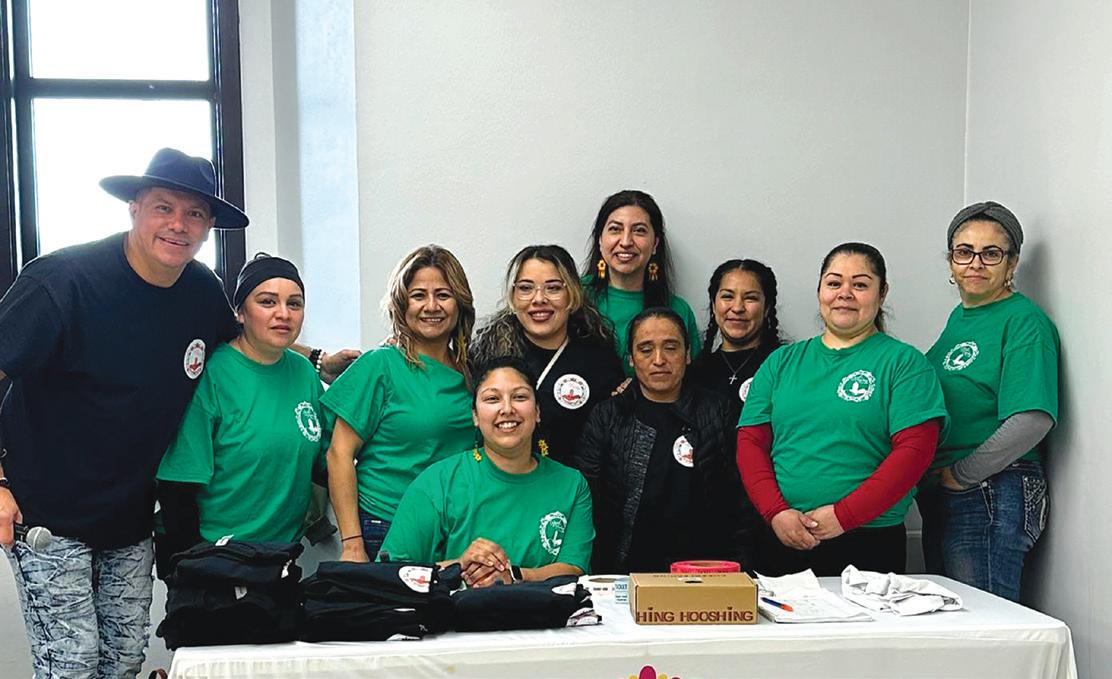
BY JESSICA MOLINA
In early 2019, Latina mothers from Aberdeen, Washington came together to address the alarming decline in mental health among the Latinx population of Grays Harbor. They were participants in the Women’s Justice Circle program, an eight-week curriculum available through the Intercommunity Peace and Justice Center (IPJC) and eventually organized an action project on how to address this issue in their community.
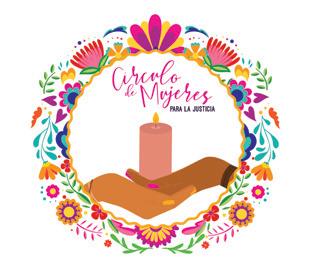
surveys regarding their experiences with mental health. People gathered to discuss depression and suicide prevention in adolescents and to raise awareness about the importance of hiring bicultural and bilingual mental health counselors and educators.
The Aberdeen Circle collaborated with educators, mental health providers, and community leaders to organize a community forum, “Familias Unidas, Comunidades Sanas” (Families United for Healthy Communities). At this event, community health organizations and leaders provided resources to over 100 community members. Attendees were empowered and informed regarding the issues at stake and were able to participate in
After a successful turnout at the forum, the Aberdeen Circle decided to continue to work together beyond the eight-week Women’s Justice Circle to advocate for culturally and linguistically appropriate mental health resources and services in Grays Harbor County. The community event validated the need for increased access to bilingual mental health counselors and educators in Grays Harbor.
A few weeks later, the Aberdeen Circle presented these findings to leadership of Grays Harbor County Public Health (GHCPH). The meeting concluded with a mutual understanding that lack of information increases the stigma associated with
mental health and well-being. This initial meeting eventually led into the first opportunity to fund the Aberdeen Circle’s community-based efforts.
The Aberdeen Circle hoped to initiate their grassroots mental health initiatives with a grant awarded from the Inatai Foundation (formerly known as Group Health Foundation) at the beginning of 2020. Unfortunately, this was also the start of the COVID-19 pandemic, which consequently meant the Circle had to restructure their initiatives and prioritize the immediate health and safety of their community.
The group felt compelled to step into the health crisis as champion messengers to help distribute health-based information and resources by joining GHCPH’s COVID-19 Equity Communications Taskforce to distribute COVID19 related information to the Latinx population of Grays Harbor. This taskforce eventually transformed into what is now Grays Harbor RISE (Red de Inclusion, Solidaridad, y Empoderamiento), a Latinx by-and-for coalition of which the Circle continues to be a member agency. The Circle also partnered with Catholic Community Services of Western Washington to support the massive food distribution in Grays Harbor and neighboring counties.
As the community navigated through the pandemic and the immense feelings of isolation and loneliness it caused, the Aberdeen Circle eventually started organizing virtual BINGO/ Loteria and family painting nights. These monthly events not only provided an accessible, creative, and fun outlet, but, in a deeper sense, they also provided families a safe place to connect to their community and foster a sense of belonging.
“While championing the cause of their community, the Latina mental health advocates faced their own emotional well-being challenges.”
Additionally, the Circle organized virtual events to inform the participants about COVID-19 updates and provide them with local resources on rental/housing assistance, food banks, and mental health supports. Eventually, the health crisis dwindled and the Aberdeen Circle was able to host these same events in person.
Thanks to the fiscal sponsorship of IPJC, in 2023 the Aberdeen Circle received consecutive funding from the Inatai Foundation for the next three years. The grants have enabled the grassroots group to explore strategies to adopt culturally based health and well-being programming through educational family engagement.
Through expanding their educational efforts, the Aberdeen Circle has organized and participated in behavioral health related initiatives and continues to plan for future projects to promote mental health promotion efforts for the Grays Harbor Latinx community.
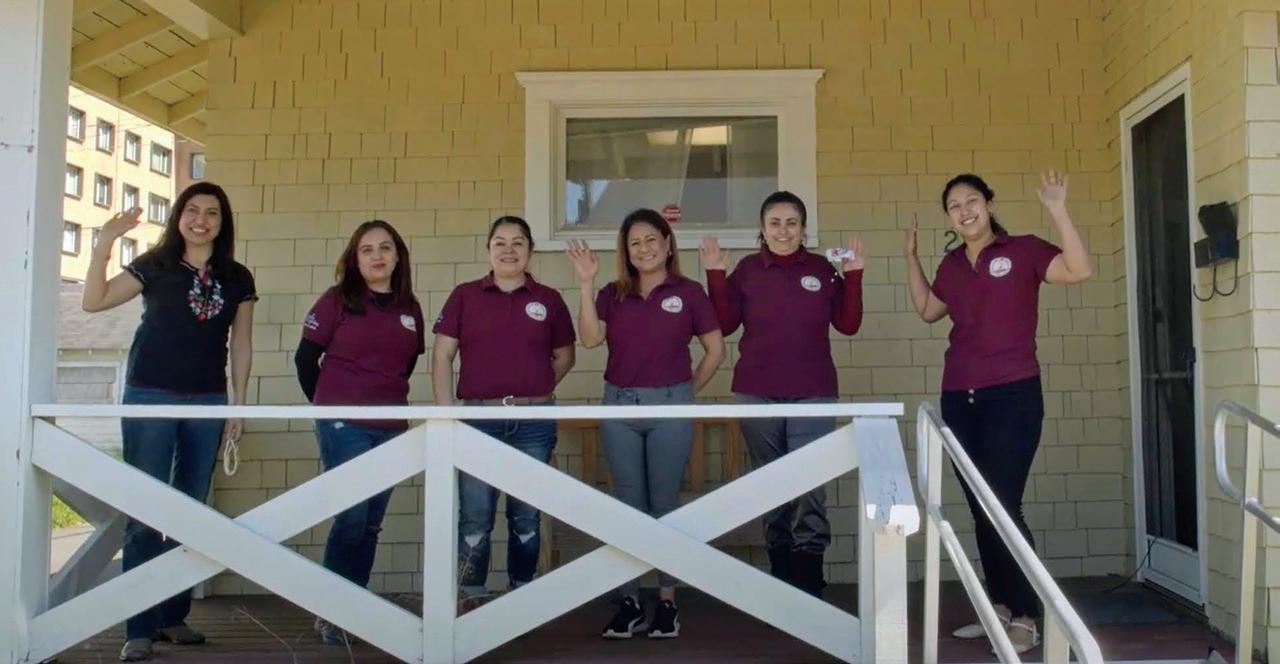

Some of the projects the Aberdeen Women’s Justice Circle accomplished in 2024:
• Third annual Mental Health Awareness Walk
• Establishing a mental health ministry through local Catholic parishes and missions of Grays Harbor
• Collaborating with prevention educators and coalition coordinators to provide culturally specific programs regarding substance use prevention and mental health promotion through the facilitation of Guiando Buenas Decisiones (Guiding Good Choices) and Fortaleciendo Familias (Strengthening Families) curriculums
• Transporting a group of youth to Consejo Counseling’s Youth Empowerment Conference
• Attending the Rural Prevention Conference and Washington State Prevention Summit
• Co-facilitating a women’s support group in partnership with Beyond Survival, the sexual assault resource center of Grays Harbor
• Providing continual promotional support to the Nuestras Historias Restorative Program with the Dispute Resolution Center of Grays Harbor and Pacific Counties.
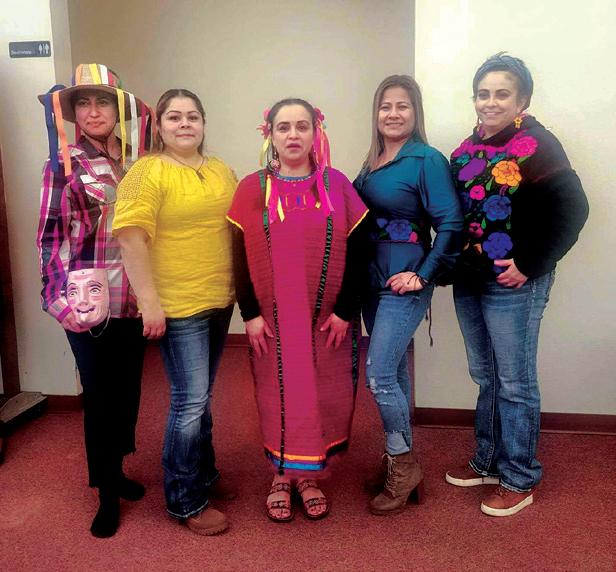
The Aberdeen Circle also continues to engage with IPJC’s Latina’s Leadership Circle Network and its upcoming initiatives.
As the Aberdeen Circle became more active with justice efforts in their community, there was a mental health moment that needed to be addressed within its members. While the Aberdeen Circle members were focusing their efforts out in the community, there were instances of burn out, mental fatigue, and emotional exhaustion among the members.
While championing the cause of their community, the Latina mental health advocates faced their own emotional wellbeing challenges. The intersection of cultural stigma, language barriers, and systemic inequities takes a significant toll on an advocate’s mental health.
To effectively support these individuals, it was crucial to access culturally specific mental health services that address the needs of Latina community leaders. This includes therapists who understand the nuances of Latina culture, the impact of discrimination, and the important balance of oneself, family, and community. By prioritizing culturally competent care, members felt empowered to continue their vital work of bringing justice to their communities.
As the Aberdeen Circle sets ambitious goals and charts out projects for their community into 2025, they acknowledge that it’s equally important to prioritize their own mental well-being.
Jessica Molina is a member of the Aberdeen Women’s Justice Circle. The Circle continues their efforts with six dedicated Circle leaders (Isabel Cisneros, Maria “Rosy” Hernandez, Silvia Chavez, Noemi Lopez, Maria “Tere” Fonseca, and Jessica Molina) and will be celebrating their sixth anniversary as a community-based group in 2025. IPJC awarded the Circle the Thea Bowman Award during our 2022 Spring Benefit.
Mental health has been the issue focus of the Youth Action Internship team over the last two academic years. Each year, the interns conduct a listening campaign with their peers to discern an issue to work on based on their lived experience and what they hear emerging from their peers. The struggle with mental health has been a central theme of each listening campaign. As a result of what the students witnessed last year, in May 2024 they submitted a proposal to the Archdiocese of Seattle Office for Catholic Schools on how to promote positive and flourishing mental health among Catholic high school students. What follows is an abridged excerpt from that report.
In October 2023, we began one-to-one listening campaign. Over six weeks, students hosted 48 one-to-one sessions. The two most prevalent issues discussed were: racism and ableism/ access to healthcare, specifically within the education system.
• 33 percent of the one-to-one participants who were impacted by racism, ableism, or both expressed additional concerns about experiences of poor mental health or mental illness, stigma within their school or cultural context, and lack of access to mental health resources.
• When surveyed, 100 percent of our cohort named mental health as a social justice issue that aligned with their values and/or experiences.
“100 percent of our cohort named mental health as a social justice issue.”
Due to the resonance of this issue with us, we determined our social justice movement would focus on mental health, specifically among Generation Z. This work built upon the work from 2022-2023 with three major recurring themes:
1. The prioritization of success, performance and college entrance over the health and well-being of students.
2. A lack of parental support in taking action to engage in positive preventative mental health practices and receiving mental health resources from school or outside sources. Students believe that parents carry stigma about mental health that makes it impossible for them to express their needs or concerns to their parents.
3. Lack of social emotional and coping skills among students. It was described that while social isolation was a main contributor to poor mental health, many students did not know how to engage in relationship dynamics that could dismantle this sense of isolation.
We determined that building a mental health campaign to address feelings of isolation, parental mental health education, and teaching positive mental health practices would best address high schooler concerns.
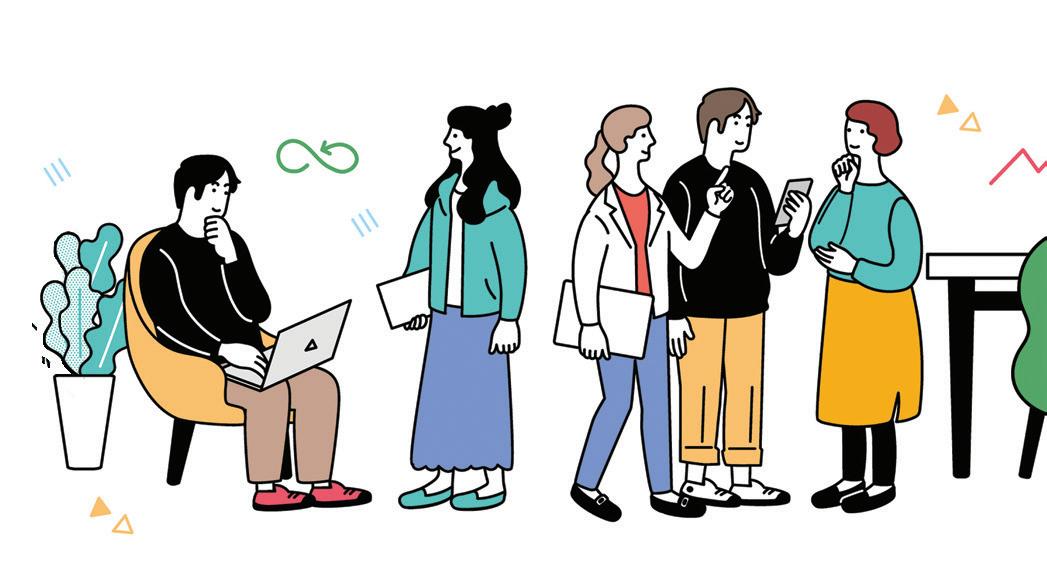
Catholic social teaching calls us to honor the life and dignity of all people. For too long, many have believed that poor mental health and/or mental illness are symptomatic of individual failings to make the right choices to care for oneself or a signifier of inherent dysfunction within a human person. Mental health issues are not an individual problem but are an expression of collective failings to create a culture in which all people’s wellbeing and ability to thrive is valued above capitalist ideals and objectives. To promote the flourishing life and dignity for all people, we must engage in new ways of being.
An examination of our mental health shows that our capacity to be social and live as full and active members of their community are inhibited. As an act of forming our beloved community, it is now the responsibility of educators, parents, and the broader adult community to participate in reforming Catholic schools to ensure the holistic development of current and future generations of youth.
The mental health crisis is violating our ability to experience life as beloved individuals who are part of a harmonious and thriving human family. Now is the time to act in solidarity with youth to prevent the furthering of an epidemic and the perpetuation of intergenerational trauma.
At its root, mental health problems are linked to systems of capitalism, which value performance, production, and profit over protecting the well-being of the human person.
Additionally, capitalistic structures tend to use a one-size fits all approach to caring for individuals, which often fails to affirm nuances of experience and identity-based needs. Rather than recognizing this failure as systemic, capitalism over-emphasizes individual responsibility and casts out those who cannot meet its expectations. In Laudate Deum, Pope Francis explains the greatest threat to the environment is capitalism’s obsession with progress and profit. Francis evaluates that care for creation requires slowness, observation, and emphasis on interdependence.
Showing students care through the proposed solutions below will teach us a new way of being that not only honors ourselves and our community but will create leaders who are primed to care for our common home.
In a near-to-peer support model, the “specialist” is often two to five years older, shares a similar identity to the individual or group members such as sex or race, and have navigated similar challenges to the peer and/or have obtained a specialization such as a degree that allows them to accompany the peer while they work towards recovery. The near-to-peer structure functions less on mutual accountability and more on mentorship.
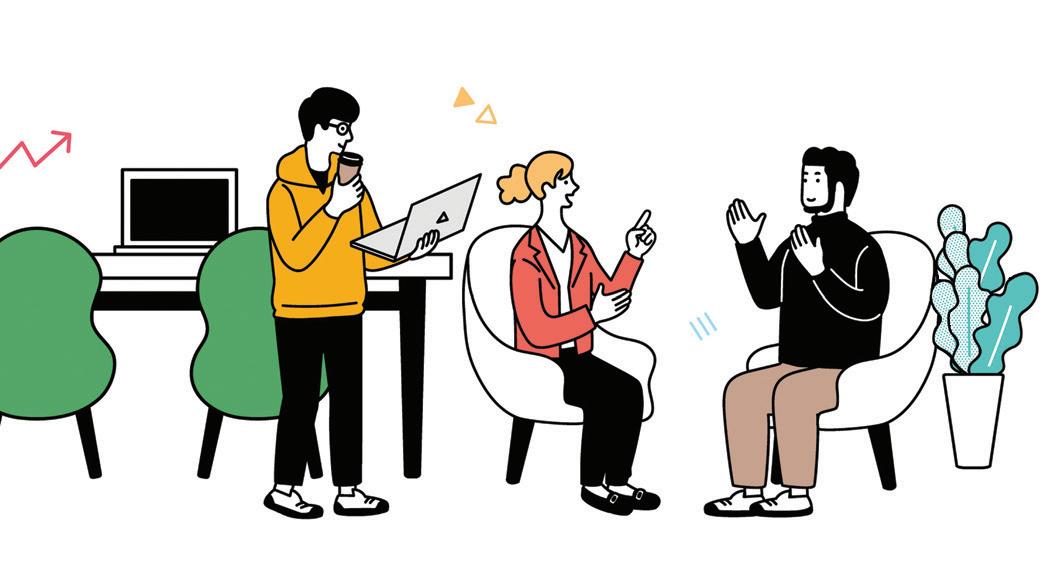
Developing a support structure of this kind in Seattle Catholic schools would be mutually beneficial for the self-interest of the peer participants, the peer specialist, and the archdiocese. For the participants, near-to-peer support minimizes experiences of social isolations through building social connection, dialogue, and skills. This would help equip students with relationship building and coping mechanisms for diverse challenges leading to greater feelings of belonging and fostering solidarity within affinity groups. For graduate students in LMFT programs, near-to-peer support offers the opportunity to practice group therapy techniques and complete clinical hours for their degree requirements and state licensure.
Stigma around mental health being entrenched in the school culture, lack of awareness of available mental health resources, lack of mental health resources that connect with our various identities, intergenerational poverty, and lack of parental support/consent are the most signficant barriers for students. Therefore, getting parents involved, educated, and aware of their students’ mental health circumstances is crucial in alleviating the barriers that they admit to experiencing. One way to aid in this process is by the schools hosting Parent Mental Health Orientation sessions (PMHO). These sessions would initially be held during new student orientation at the beginning of each school year and continue throughout the year. These sessions would be designed to be educational launchpads to help parents become more knowledgeable and more actively involved in caring for the mental health of their children when appropriate and needed.
One of the biggest hurdles to consistent parental support and involvement in the arena of mental health for students is the presence of stigma. This stigma may be personal to the individual parent based on experience or it may be present because of cultural beliefs and ideas around mental health overall. Therefore, parental involvement in mental health cannot be taken with a one-size fits all approach but must account for the diverse cultural ideals and beliefs that parents come in with.
We found that high school students in Catholic schools struggled with stigma surrounding mental health, lack of belonging, burnout, lack of healthy coping mechanisms, and other prevalent negative effects.
To address burnout and other consequences of poor mental health care, we believe that a Social and Emotional Learning (SEL) curriculum should be implemented within Seattle Catholic high schools. SEL is designed to impact the development of people by giving them the skills they need to create deeper and more meaningful relationships with themselves, their peers, and their communitie.
Students who have participated in SEL programming have experienced significant boosts in academic performance. Aside from academic performance, SEL empowers students with skills like perspective taking, emotional regulation, and increased stress management; skills that will benefit them far beyond high school.
This year the Youth Action Team interns have decided to focus on immigration as the issue to build their social movement towards. The second-year fellows are in the midst of building a Catholic High School Leaders for Social Change coalition made up of students attending Catholic schools and Catholic identifying high school students from across western Washington. The first phase of this work will focus on listening across the community and then discerning two to three issue areas for the coalition to focus on long-term. Based on our method and belief, we can’t know what those issues are until we hear from students, but based on the based on the historical experience of the Youth Action Team, we anticipate the work will connect to mental health challenges.
This article is an abridged version of a report the Youth Action Team put together and presented to the Archdiocesan School District. The students met with the superintendant of Catholic schools, Nicholas Ford, to present these findings and solutions. Nicholas was generous with his time and attention, sharing a meal with the students, allowing the students to share all of their work, and dialoguing with them about what might be possible. There has not been a formal follow up since the last meeting, but Nicholas asked the students to identify the solution that was highest priority and committed to exploring its implementation across Catholic schools in the archdiocese.
BY SAMANTHA CAMERA
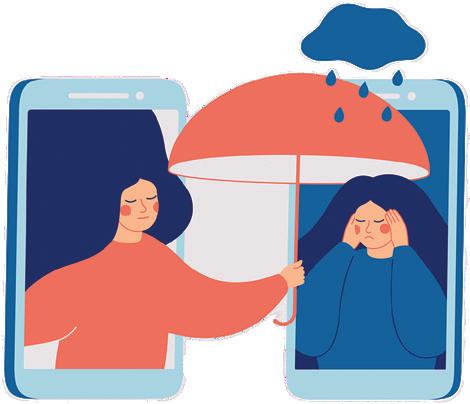
Seeking therapy doesn’t mean you are weak or flawed—it means you’re human. Life can be challenging, from relationships to jobs to finding value or even joy within a person’s life.
Unfortunately, the stigma around therapy can still make reaching out feel isolating or even shameful. However, seeking support is a courageous step toward living authentically and fully. It’s a powerful decision that can lead to significant personal growth and a deeper understanding of yourself. Therapy is not just for people in crisis; it’s for anyone who wants to gain insight, learn strategies, and find a sense of peace, whether through addressing anxiety, depression, grief, or even something as practical as creating a sustainable routine.
For individuals of faith, therapy can be an opportunity to integrate spiritual beliefs into the healing process. This integration can provide comfort and guidance, connecting to something more significant as you navigate life’s challenges. Therapists can help you explore how faith informs your patterns, values, and choices, supporting you in aligning your spiritual life with your mental and emotional well-being.
When considering starting therapy, these questions might serve as a helpful guide to finding a therapist:
• Do I prefer a therapist of a specific gender?
• Would I feel more comfortable with in-person or online sessions? If online, do I have a private, distraction-free space where I can focus?
• How often can I commit to therapy (weekly, bi-weekly, or monthly)?
• Is it essential for my therapist to incorporate faith into our work?
• Will I use insurance, or will I pay out of pocket? If using insurance, how much does my insurance company cover? Call your insurance company and ask if they have any providers in your network that can cover therapy. If not using insurance, what is your budget for therapy?
When deciding to take steps to find a therapist, there can be a lot of avenues to go down; you can Google “psychotherapist near me” or “psychotherapist who works with _________ (add symptoms or things you are experiencing).
There are also many directories of therapists online, including Psychology Today, Open Path Collective, and TherapyDen. You can use the filters on these platforms to find a therapist who meets your needs.
Many therapists have 15-minute consultations where you can meet and chat with the therapist to know if you feel comfortable with that person. Ask yourself the following questions after the 15-minute consultation:
• Did I feel heard and understood?
• Was the therapist’s communication style a good fit for me?
• Do they understand or respect my faith?
Having these check-ins with yourself after the 15-minute consultations can save you time and money and help you reach the goals you want to achieve from therapy. Therapy is a vulnerable process, and a solid therapeutic relationship creates the foundation for meaningful progress.
Your first session with a therapist is often called an intake session. During this meeting, the therapist will ask questions about your goals, background, and struggles. Topics might include your personal and family history, medical background, and reasons for seeking therapy now. You’ll also discuss confidentiality and the therapist’s responsibilities, including mandatory reporting laws.
After the first session, you might feel drained, exhausted, excited, relieved, or all the above. Just note that not all sessions will go like the initial session; after the initial session, therapy will focus on understanding more of the patterns and how they appear and digging deeper into the goals for treatment.
Many of us may have long-term behavioral patterns and other struggles, and it can take equally as long to make a change.
Sometimes, therapy can take a while (about 12 sessions) before the therapist can even start to use tools and techniques to help break up the patterns that appear. Therapy can help you learn about patterns and why they may appear, what they are doing, how those patterns have helped you get to where you are. During that time, patterns have formed. Like anyone in life, we are supposed to grow and change over time, and if we are feeling stuck or recognizing that the patterns are not helpful anymore, that could be a time to look for help/support within that stuckness. Other times, therapy can be a space to explore or develop new techniques to help you process emotions. A therapist can help you find what methods work best for you.
For those who hold faith close to their hearts, therapy can be an opportunity to deepen their connection to their beliefs while addressing emotional and mental challenges. Faith can provide a grounding force, offering strength and hope in moments of struggle. Integrating faith into therapy allows you to explore questions like:
• How do my spiritual beliefs shape my response to challenges?
• Are there patterns in my life that conflict with my values or faith?
• How can I use prayer, meditation, or scripture as tools for healing?
A faith-integrated approach doesn’t mean your therapist imposes their own beliefs. Instead, it’s about weaving your values into the therapeutic process, allowing your spiritual life to support your mental and emotional growth.
At its core, therapy is a space for growth, self-discovery, and healing. It’s a place to explore your identity, process emotions, and find new ways to thrive. Whether you’re seeking support for a specific challenge or looking to deepen your connection to your faith, therapy offers tools and insights to help you move forward.
Remember, seeking therapy isn’t about fixing something “wrong” with you—it’s about honoring your journey and giving yourself the space to grow. With time, patience, and the proper support, therapy can help you embrace your full potential and approach life’s challenges with strength and clarity.
Samantha Camera has a master’s degree in marriage and family therapy from Seattle University. She is a practicing marriage and family therapist in Washington State who works with teens, individuals, and premarital couples.
BY PATRICK SAINT-JEAN, S.J.

Not too long ago, on a Saturday evening as I was closing the doors of my parish in East Oakland to head back home, I saw a couple with their 22-year-old daughter running toward me. Their daughter seemed to be dealing with some mental health condition, and all three of them looked desperate. I approached them as fast as I could.
“Pray for us,” the parents begged as they got closer. I could see that they were shaken and upset. I paused. I got closer to the daughter, held her hands, and she looked at me. I looked at her, then asked calmly, “How can I be helpful to you?”
They responded that they were a member of a different parish about five miles away. One of the priests there had told them that their daughter was acting out because she had several demons on her head. That priest had told them to go see me, “because I know how to out demons with prayer.”
“Help us,” her parents said. “You need to pray for her. The priest told us you are the only one who can pray for her.”
As both a minister and a licensed mental health professional, I validated and respected the parents’ reports. But I also asked whether they had taken their daughter to see a doctor. When they replied that they hadn’t and reiterated what their priest had told them, I said, “I will pray for her very quickly, but I also want you to call 9-1-1 and go to a hospital with her immediately.” I then insisted on accompanying the family to the hospital for professional treatment.
I recognize the power of prayer and the presence of God as the Alpha and Omega, the Doctor of doctors. But not all matters are exclusively spiritual. This same God is also present in trained professionals. Unfortunately, however, mental health remains an underdeveloped,
“…sometimes people can use prayers as a mechanism of defense in a way that is not appropriate and that doesn’t bring us closer to God.”

under-researched, and underfunded topic in the Catholic Church. I encounter many people who are confused about the relationship between mental health and Catholic teaching.
As Karl Jung said, “Prayer is very necessary.” It remains one of the most certain, serious, and useful tools in one’s spiritual life. It is a way through which we creatures meet our creator and find healing. And yet, at the same time, it can be dangerous when it is seen as the only solution.
I have trained in clinical psychoanalysis and clinical psychology in France, Brazil, Congo Kinshasa, Italy, Mexico, and the United States for over 14 years. As a Jesuit, I have also ministered as a spiritual director for several years. While my training and my faith help me to adapt spiritual rituals that might be helpful for people experiencing mental health challenges, none of these involve casting out demons, nor is that an appropriate use of prayer.
As the great Spanish psychoanalyst and Jesuit Carlos Dominguez writes, “[Prayer] is a psychologically risky matter, because the line separating prayer from purely delirious phantasy could be quite blurry.” 1 In other words, sometimes people can use prayers as a mechanism of defense in a way that is not appropriate and that doesn’t bring us closer to God.
This is a spiritual problem that requires both a spiritual and a psychological solution. While prayer is essential for spiritual well-being, mental health professionals are also necessary for psychological health.
Sometimes, when facing mental health conditions, people rely on prayer requests instead of seeking professional help. But doing so doesn’t show faith in God; it actually just shows distrust in our relationship with Christ. Sometimes praying is an act of desperation and irresponsibility that allows us to avoid seeking help from a professional.
As clergy, my ministry is to announce the Good News. Refusing to direct a struggling member of the faithful to an appropriate mental health professional would prevent me
from preaching the Good News appropriately; it would mean refusing to recognize God’s gift to these professionals and doing a disservice to those people who need their help.
While prayer, worship, and meditation may be essential aspects to mental health, they are not the only avenues for engaging with it. Christians have a spiritual and theological obligation to use all available resources to be healthy, including having a good therapist, a strong spiritual community, spiritual director, and/or pastoral counselor.
Prayer is hard for people on the best of days; it is even more challenging for people in the midst of a mental health crisis. So many of us feel that God is nonexistent or far away. That God is helpless in the face of their depression or despair. When clergy encounter these people and use the language of spiritual platitudes to try to solve their mental health problems, that actually pushes them further for God.
It is important for ministers to recognize the resources that are available to us. As God uses us to walk with God’s children in times of despair, so too does God use mental health professionals. I feel an obligation to work hand in hand with these professionals as I minister to people.
One way I try to bridge the medical and spiritual is as I did in the situation above. I offer a short prayer, then help them to contact a mental health professional immediately. And, in the longer term, I make sure they have a community to pray with.
Mental health struggles are, unfortunately, a part of life. God works through both ministers and health professionals to make sure that all of us have people caring for us, walking with us through our own struggles. While prayer is essential in our lives, it should not replace the need for mental health professionals. Mental health professionals are also part of God’s gifts to us.

Everything we know about rest has been tainted by the brainwashing from a white supremacist, capitalist system. As a culture, we don’t know how to rest, and our understanding of rest has been influenced by the toxicity of grind culture. We believe rest is a luxury, privilege, and an extra treat we can give to ourselves after suffering from exhaustion and sleep deprivation. Rest isn’t a luxury, but an absolute necessity if we’re going to survive and thrive. Rest isn’t an afterthought, but a basic part of being human. Rest is a divine right. Rest is a human right. We come into the world prepared to love, care, and rest. The systems kill us slowly via capitalism and white supremacy. Rest must interrupt. Like hope, rest is disruptive, it allows space for us to envision new possibilities. We must reimagine rest within a capitalist system.
—TRICIA HERSHEY
(Rest is Resistance: A Manifesto, Little, Brown Spark)
n How has the pressure to “do more” affected your mental health? In what ways might embracing rest as a divine right bring healing to your mind and spirit?
n Scripture often speaks of God offering rest to the weary. How can prayer, scripture, or spiritual practices help you reframe rest as a necessary part of mental health care?
n What barriers prevent you from resting or caring for your mental health? How might your communities support you or others in overcoming these challenges?
n How can you create a balance between ministry, community care, and personal mental health? What practices might help you sustain this balance?
n In the face of systems that harm mental health, such as capitalism and white supremacy, how can we as Catholics advocate for practices and policies that prioritize mental well-being for all?
IPJC staff Sheila Edwards and Will Rutt traveled to Kennewick, Washington were able to attend the 2nd annual R.U.N. in Unity Conference hosted by the Nez Perce tribe focused on salmon, orca, and river recovery. Highlights included conversations with partners like Se Si Le, Khimstonek, Save Our Wild Salmon, and Earth Ministry; a visit to the REACH Museum; and hearing from community leaders of the Elwha and Klamath dam removal projects. Stay tuned for upcoming Sacred Salmon Campaign events and opportunities!


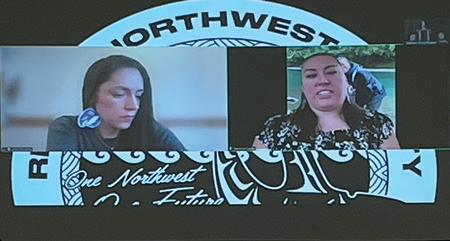
The Youth Action Team hosted over 110 one-to-one conversations this fall and based on their listening and the lived experience of the interns the group will focus on immigration justice this coming spring. Be on the look out for upcoming events!
Women’s Justice Circle Leaders Annual Gathering
Former and current Circle facilitators will gather in Federal Way, Washington in February to deepen relationships, strengthen the network, and continue growing their leadership skills and capacity.

©
Northwest Jesuit Advocacy Summit
February 27 – March 1, 2025
Join us for the third annual Jesuit Advocacy Summit hosted at Bellarmine Preparatory School and Seattle University. This beautiful intergenerational gathering focused on environmental justice will feature daytime events for high school students and evening events for the whole community. To learn more visit jesuitswestcore.org/ nw-ignatian-advocacy-summit
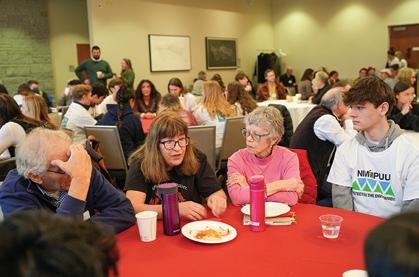
Save the Date: IPJC Spring Benefit
Place of Belonging
Thursday, May 15, 2025
We are going to back to our traditional sit-down dinner and program at a new place, St. Catherine Catholic Parish. Join our community to celebrate and support the work of IPJC. More details and invitations to come.
Salmon Organizing Team
Are you interested in helping IPJC expand our Sacred Salmon Campaign? Email Will Rutt at wrutt@ipjc.org to let us know and we will find a way to get you connected.
Do you or someone you know like telling stories? Are you connected to exciting and compelling justice work that needs to be shared? We are looking to grow our AMOS editorial board! If you are interested, please reach out to Will Rutt at wrutt@ipjc.org or call our office.
In Case You Missed It
Bring your friends together for Lent with our six session guide, including the 2020 Bishops Pastoral on Racism. Available free at IPJC, if possible please cover the cost for shipping. Order at ipjc.org/ open-wide-our-hearts-theenduring-call-to-love/
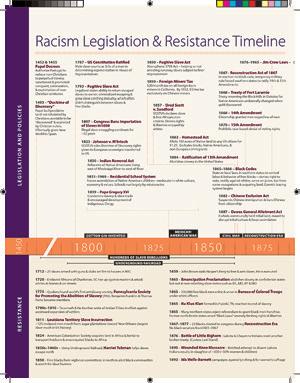
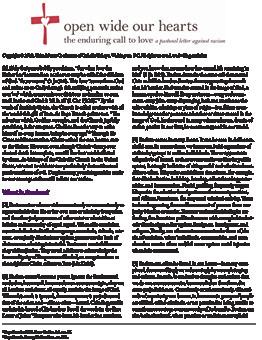
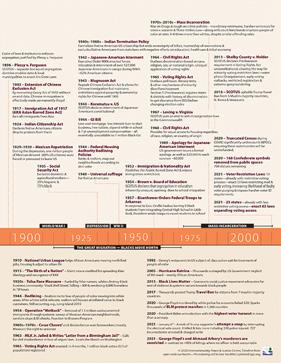
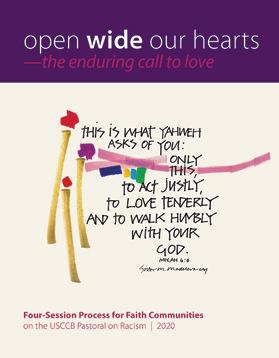
IN HONOR OF Sisters of the Presentation,
All those who struggle and work for human rights and justice for all.
IN MEMORY OF Sr. Mary Pat Murphy, Joseph & Josephine Stein
Intercommunity Peace & Justice Center
1216 NE 65th St Seattle, WA 98115-6724
SPONSORING COMMUNITIES
Adrian Dominican Sisters
Congregation of the Sisters of St. Joseph of Peace
Jesuits West
Sisters of the Holy Names of Jesus and Mary, U.S.-Ontario Province
Sisters of Providence, Mother Joseph Province
Sisters of St. Francis of Philadelphia
Tacoma Dominicans
AFFILIATE COMMUNITIES
Benedictine Sisters of Cottonwood, Idaho
Benedictine Sisters of Lacey
Benedictine Sisters of Mt. Angel
Dominican Sisters of Mission San Jose Dominican Sisters of Racine
Dominican Sisters of San Rafael Sinsinawa Dominicans
Sisters of Charity of the Blessed Virgin Mary
Sisters of St. Francis of Redwood City
Sisters of St. Joseph of Carondelet
Sisters of St. Mary of Oregon
Society of the Holy Child Jesus
Sisters of the Holy Family
Sisters of the Presentation, San Francisco
Society of Helpers
Society of the Sacred Heart
Ursuline Sisters of the Roman Union
EDITORIAL BOARD
Don Clemmer
Kelly Hickman
Cassidy Klein
Nick Mele
Andrea Mendoza
Will Rutt
Editor: Emily Sanna
Copy Editor: Cassidy Klein
Design: Sheila Edwards
A Matter of Spirit is a quarterly publication of the Intercommunity Peace & Justice Center, a 501(c)3 nonprofit organization, Federal Tax ID# 94-3083964. All donations are tax-deductible within the guidelines of U.S. law. To make a matching corporate gift, a gift of stocks, bonds, or other securities please call (206) 223-1138. Printed on FSC® certified paper made from 30% post-consumer waste.
Cover: Aberdeen Circle supporting community food distribution. Photo courtesy of the Aberdeen Circle. ipjc@ipjc.org • ipjc.org

breathing in i am aware of my pain. breathing out
i am aware that i am not my pain.
breathing in i am aware of my past.
breathing out
i am aware that i am not my past.
breathing in i am aware of my anger.
breathing out
i am aware that i am not my anger.
breathing in i am aware of my despair.
breathing out
i am aware that i am not my despair.
breathing in i am aware of peace.
breathing out
i am aware that i am worthy of peace.
breathing in i am aware of love.
breathing out
i am aware that i am worthy of love.
breathing in i am aware of joy.
breathing out
i am aware that i am an agent of joy.
breathing in i am aware of hope.
breathing out
i am aware that i am an agent of hope.
breathing in i am aware.
—NATHAN C. WALKER